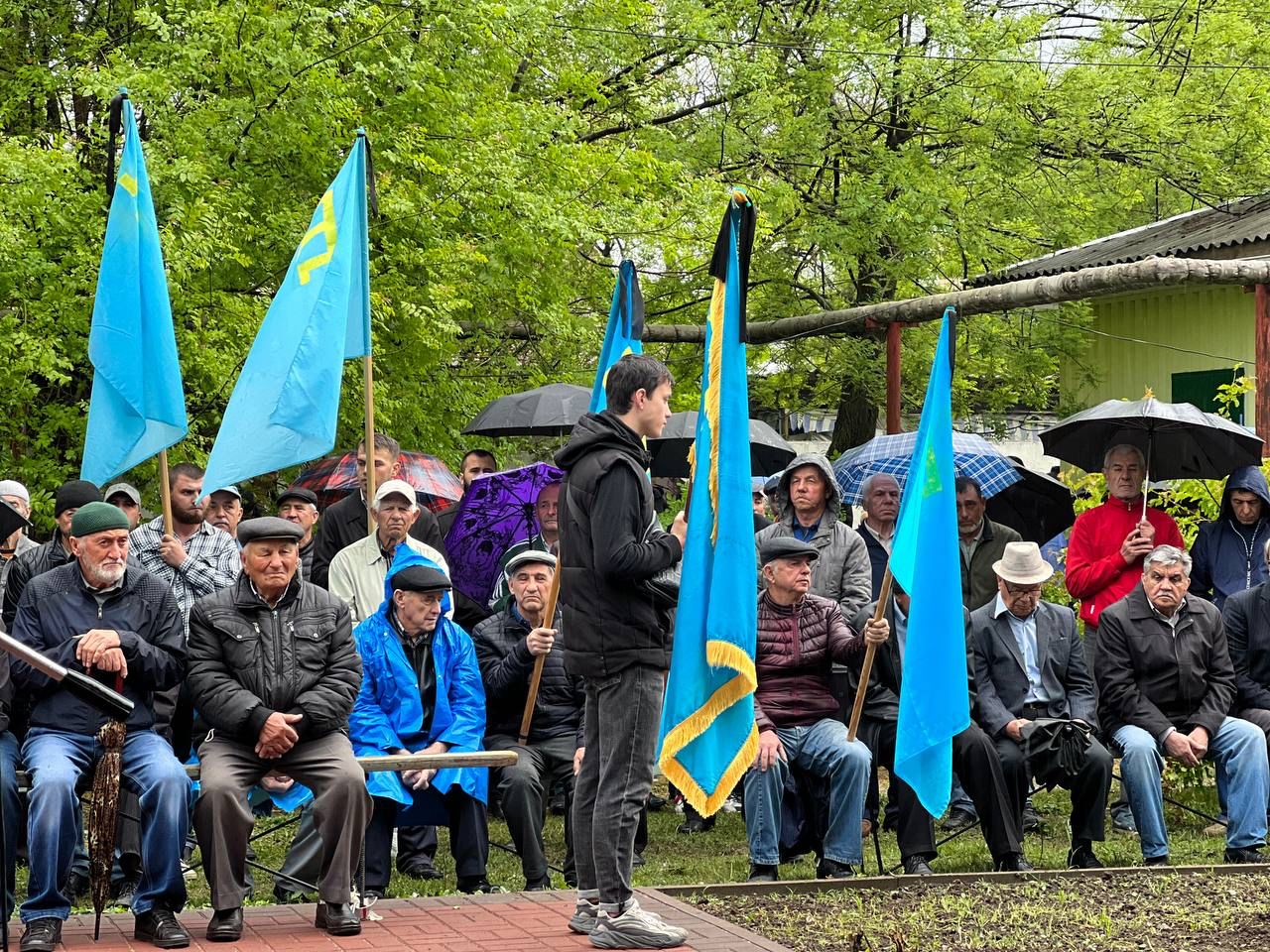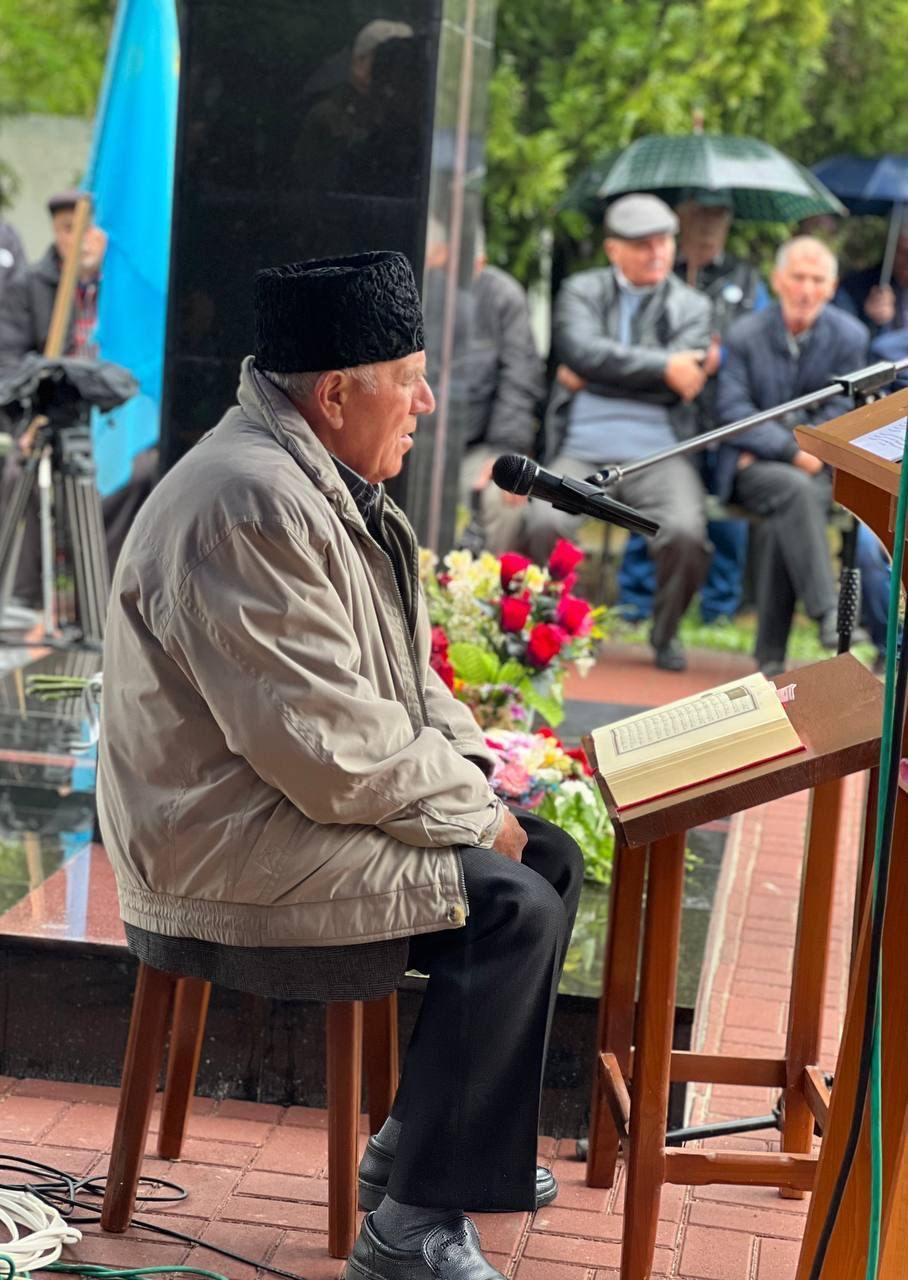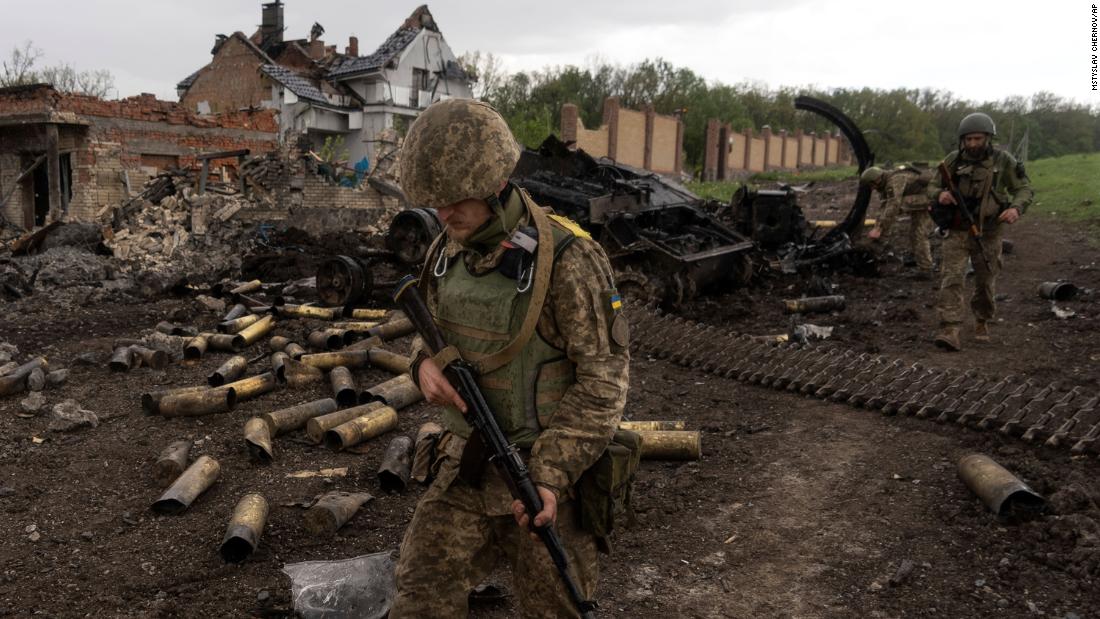
About 70 people in the Crimean capital have defied official warnings to commemorate the victims of Stalin’s mass deportation of the Tatar people in 1944.
They braved heavy rain and the risk of retribution to attend a memorial event at a plaque near the railway station in Simferopol, carrying flags and, in some cases, the Ukrainian colors in the shape of a bracelet or lapel pin.
Half the Crimean Tatar, a Sunni Muslim people, are thought to have died during their forced removal to remote parts of the Soviet Union; their descendants speak of the deportation as genocide.
But for the past eight years, since Russia annexed Crimea, they have been refused permission to commemorate the horror.
The Kharkiv Human Rights Group, which investigates abuses throughout Ukraine, says that this year Tatar activists received warnings from Russian officials in Crimea about “the inadmissibility of extremist activities.”
But the event went ahead, with the elderly making up the majority of attendees.
One young man who attended said that, before the Russian annexation of Crimea in 2014, as many as 50,000 people would converge on the main square in Simferopol to mark the anniversary.
Many of them had returned to their homeland after the fall of the Soviet Union and the Tatar community had flourished again.
CNN is not naming the man for his own safety.
“It was prohibited to make such demonstrations in recent years,” he told CNN, and gradually the numbers turning out had fallen.
“People are going in small groups to the mosques, cemeteries, and memorials,” he said.
But he had wanted to come to the event in Simferopol, to “get together in a crowd with our flags, pray together and commemorate this tragedy, because it moves the soul.”
About 200 Tatars gathered in Büyük Onlar (named by the Soviets as Oktyabrskoe) where a prayer was said in the rain and children read poems.

The anniversary was also marked by the Ukrainian government, which drew parallels with Russia’s ongoing invasion.
President Volodymyr Zelensky signed legislation “for the protection of all ordinary peaceful, civilian people who were repressed by the occupiers and who were taken prisoner by them.”
Tamila Tasheva, Zelensky’s representative to Crimea, said: “We cannot help but draw parallels to 1944. Current crimes have a long history … Crimean Tatars are no longer put in freight cars and taken out by force, but [the Russians] create conditions for us to leave our historical homeland.”
Those Tatars who do protest or promote the Crimean identity often find themselves in court.
According to the human rights group Crimea SOS, nearly 100 Tatars are victims of politically-motivated criminal prosecution; many of them are serving long jail sentences.
Eskender Bariiev, a leading Crimean Tatar activist, says the historical parallels of 1944 with today are unmistakable.
“The Crimean Tatar people were accused of collaborating with the Nazis and [Stalin] conducted a special operation, thus deporting Crimean Tatars from Crimea,” Bariiev said this week.
“Now under the slogans of denazification and demilitarization, the occupiers launched a so-called special operation, and in fact the genocide of the Ukrainian people.”
Bariiev said that, just as the Crimean Tatars had been deported, so too the Russians were now forcibly deporting hundreds of thousands of Ukrainians, mostly to remote parts of Russia.





More News
At Chaotic Rally in Brooklyn, Police Violently Confront Protesters
Are Those Mimes Spying on Us? In Pakistan, It’s Not a Strange Question.
Jürgen Klopp and Liverpool, a Love Affair in Street Art and Silverware